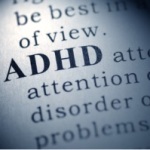
Signs and Symptoms of ADHD in Adults
Attention-Deficit/Hyperactivity Disorder (ADHD) is a psychological disorder that involves a continuous pattern of difficulties sustaining focus and attention, hyperactive or impulsive behavior. While children may be diagnosed with the inattentive type of ADHD, the hyperactive type, or a combined inattentive/hyperactive type of ADHD, adults most commonly experience problems with inattention but not hyperactivity. An adult diagnosis of ADHD requires that the individual was showing several symptoms of ADHD before the age of 12.
Symptoms of ADHD in Adults
There are over a dozen symptoms associated with an adult diagnosis of ADHD. Some of the more common ones are:
Concentration Difficulties: Excessive distractibility and difficulty focusing, completing tasks, or listening intently. Individuals with ADHD often struggle with these symptoms find it difficult to focus on details of their work or the flow of conversations, which can lead to an increase in inaccurate or partially completed work and problems in their relationships.
Disorganization: Forgetfulness, misplacing items, trouble meeting deadlines or arriving to places on time, and difficulties maintaining organization of living and working spaces.
Hyperactivity: Feelings of restlessness or boredom, difficulties with feeling calm or sitting still, and experiences of racing thoughts and the need to be physically active during inappropriate times.
Impulsivity: Difficulty with self-control. This may be observed by patterns of interrupting others, spontaneous outbursts that seem out of context to the situation or which others experience as offensive or irritating, or exhibiting socially inappropriate or addictive behaviors.
Hyperfocused: Mentally absorbed in preferred activities or interests that the individual finds appealing, causing him or her to neglect responsibilities or tasks that need to be completed.
Emotion Instability: Symptoms of depression or mood swings, struggles with tolerating frustration, feelings of irritation, and changes in temperament and self-esteem.
Differential Diagnosis
Most of the symptoms listed here are shared by other psychiatric disorders such as bipolar disorder, anxiety disorders, psychotic disorders, drug and alcohol addiction, and other conditions. There are several medical conditions that also can cause many of these symptoms. To make things even more complicated, patients can share two or more diagnoses that have some overlapping symptoms, such as ADHD, bipolar disorder, and diabetes. Because a comprehensive accurate diagnosis is essential to providing excellent care, a diagnosis should only be made by a trained, licensed mental health professional such as a psychologist or a psychiatrist.
Having ADHD can cause a person to develop a variety of personal problems that can affect their lives, such as relational problems, difficulties maintaining a quality work environment, financial instability, and health concerns. A mental health professional can also assess these life stresses and help the person begin to develop a plan to get control over their life.
How to Get Help
If you or someone you live is diagnosed with ADHD, a variety of treatments can be used to help achieve a satisfying and functional life. Standard treatment for ADHD involved medication and psychotherapy. Group therapy and educational or career assistance can also assist those who need additional resources.

